Broccoli: Uses, Benefits, Side Effects By Dr. Rajeev Singh
By Dr Rajeev Singh +2 more

Get,

to manage your symptom
Get your,


4 Cr+ families
benefitted

OTP sent to 9988776655



You’ve successfully subscribed to receive
doctor-approved tips on
Whatsapp

Get ready to feel your best.

Hi There,
Download the PharmEasy App now!!


Register to Avail the Offer
Send OTPBy continuing, you agree with our Privacy Policy and Terms and Conditions

Hi There,
Sign up on PharmEasy now!!
Trusted by 4 crore+ families

OTP sent to 9988776655



You have unlocked 25% off on medicines




Code: NU25
By Dr Rajeev Singh +2 more
Table of Contents
Broccoli, earlier popularised in Western countries, is now gaining renewed interest globally. Broccoli, a yummy vegetable that looks like a mini-tree with several branches and flower heads, is slowly becoming a serious contender as the next superfood. The scientific name of Broccoli is Brassica oleracea. It is a member of the Brassicaceae family, other members include cabbage, cauliflower, kale, etc.
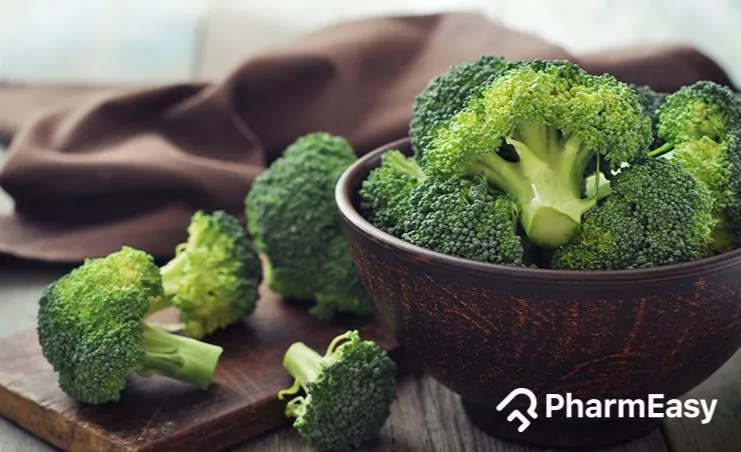
The members of this family are rich in vitamins, minerals, glycosides, dietary fibers etc. Due to its high nutritional value, broccoli is also known as the “Crown jewel of nutrition”. It is a winter-season crop cultivated largely along the Mediterranean region1. There are several ways in which broccoli is consumed this versatile ingredient can be used in various recipes, as a standalone ingredient in salads, steamed and sprinkled with seasoning of choice and consumed as a side dish, stir-fried or boiled, and prepared as a soup2. Let us know more about this superfood’s benefits, nutritional value and side effects.
Broccoli contains various nutritional components that are given in the table below. They are rich in a variety of compounds, like vitamins, minerals, dietary fibre, sulfur containing compounds, anticancer and antioxidants. Nutritional value of broccoli (florets)2,3,4,5 given below:
Scientific literature has found that the consumption of Broccoli shows numerous properties as those mentioned below which may be:
Some of the potential benefits of Broccoli are described as follows:

Broccoli contains a biochemical compound, sulforaphane which has anticarcinogenic properties. Liu et al. conducted a study in 2017 to assess the effect of broccoli on targeting squamous cell carcinomas in vitro and in-vivo. The study6 results showed broccoli had a positive impact on cancer and caused tumor suppression. This may indicate that consumption of broccoli may help in avoiding the occurrence of cancers, however, more human studies to support these claims are needed.
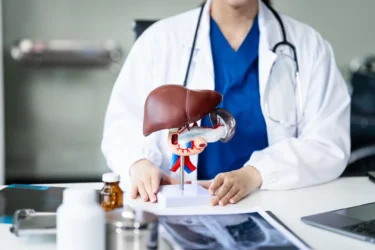
Fatty liver is an umbrella term which is known to include several disease conditions caused by fat accumulation in the liver. Studies show consumption of broccoli can slow down the development of fatty liver. Chen et al. conducted a study7 in 2016 to observe the effects of broccoli consumption on fatty liver in mice. Six months of consumption of broccoli showed decreased levels of liver enzymes, NAFLD (non-alcoholic fatty liver disease) scores and suppressed hepatic neoplasm formation. However, more human studies are required to ascertain these claims.
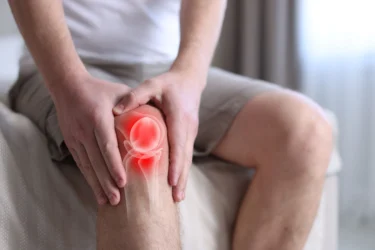
Osteoarthritis is a degenerative joint disease. Broccoli contains sulforaphane (isothiocyanate) which has anti-inflammatory properties. Davidson et al. conducted a study8 in 2017 to assess the effect of broccoli consumption on osteoarthritis. A 100-g consumption of broccoli for 14 days resulted in an improvement in the levels of isothiocyanate, however the functional consequence of this on humans has to be studied.
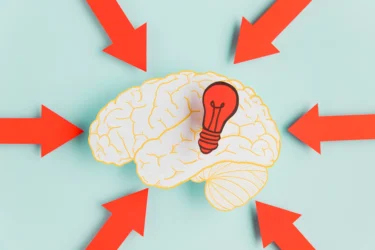
Alzheimer’s disease is a very common neurodegenerative disease in the elderly which impairs mental functions and memory. The main cause of this disease is the occurrence of amyloid deposits and oxidative stress. Zhang et al. conducted a study9 in 2015 to assess the effects of sulforaphane present in broccoli on Alzheimer’s. The study was conducted in mice and it was found that broccoli which contains sulforaphane, had neuroprotective effects and helped in protecting the brain from amyloid deposits and oxidative stress. Therefore, there is a possibility that consumption of broccoli can help prevent Alzheimer’s disease, but we need more human studies to support these claims.
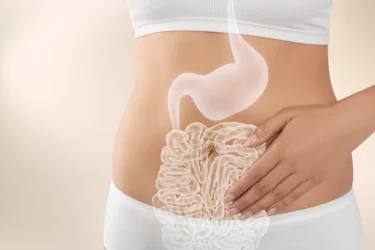
Chronic oxidative stress can delay the defecation process. A diet rich in fibre can help aid the digestion process and can relieve constipation. Broccoli in addition to being rich in fibre is also rich in sulforaphane, an antioxidant. Akinori et al. conducted a study10 in 2018 to assess the effects of broccoli-supplemented diet on defecation. The participants were requested to eat 20g of raw broccoli daily for 4 weeks. Four weeks of broccoli consumption showed improvement in bowel habits. Thus, it can be concluded that the consumption of broccoli may help in improving overall gastrointestinal health.
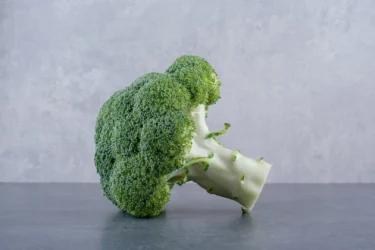
Though there are studies that show the benefits of Broccoli in various conditions, but these are insufficient and there is a need for further studies to establish the true extent of the benefits of Broccoli on human health.
Eating broccoli might improve your vision. Broccoli contains a compound named indole-3-carbonyl which might be able to remove environmental toxins by a specific receptor, aryl hydrocarbon receptor proteins (Ahr). This receptor might be responsible for the detoxification of the retina12.
Dr. Siddharth Gupta, B.A.M.S, M.D (Ayu)
Broccoli can be used in the following ways:
You must consult a qualified doctor before taking any herbal supplements. Do not discontinue or replace an ongoing treatment of modern medicine with an ayurvedic/herbal preparation without consulting a qualified doctor.
A few side effects related to the consumption of Broccoli include:
However, if you experience any adverse reactions to broccoli, immediately contact a doctor or your Ayurvedic physician who has prescribed it to you. They will be able to guide you appropriately for your symptoms.
Broccoli may have a beneficial role in maintaining heart health. Based on some research, people who eat broccoli regularly may have less calcium buildup in their aortas. As we know calcified aortas might lead to heart attacks or stroke. Thus, broccoli might be beneficial in reducing the risk of heart health and stroke13.
Dr. Rajeev Singh, BAMS
Eating broccoli is healthy if taken in moderate amounts. However, general precautions must be followed in the given conditions:
As broccoli contains Vitamin K, it may interact with blood-thinning medicines and increase the risk of bleeding. Therefore, you must always seek the advice of your Ayurvedic physician about the possible interaction of broccoli with other drugs, and follow the prescription thoroughly, as they will know your health condition and other medications you are taking11.
Also Read: Oregano: Uses, Benefits, Side Effects By Dr. Smita Barode
The scientific name of Broccoli is Brassica oleracea, and it is a member of the Brassicaceae family1.
Cruciferous vegetables/flowering plants included in this family are cabbage, cauliflower, kale, etc1.
Broccoli which is rich in vitamins, minerals, antioxidants, glycosides, dietary fibres etc., is also known as the crown jewel of nutrition” due to its high nutritional value1.
Yes. As broccoli is rich in dietary fibre and sulforaphane, both of which aids in digestion and the latter also reduces oxidative stress and therefore, it can improve bowel defecation. However, it is advised to consult a doctor for a proper treatment and do not consider consumption of broccoli as an alternative to modern medicine.
In addition to blood pressure lowering by your blood pressure medication, consumption of broccoli, which is rich in Potassium will result in severe hypotension. So, it is advised to consult a doctor for proper advice10.
Disclaimer: The information provided here is for educational/awareness purposes only and is not intended to be a substitute for medical treatment by a healthcare professional and should not be relied upon to diagnose or treat any medical condition. The reader should consult a registered medical practitioner to determine the appropriateness of the information before consuming any medication. PharmEasy does not provide any guarantee or warranty (express or implied) regarding the accuracy, adequacy, completeness, legality, reliability, or usefulness of the information; and disclaims any liability arising thereof.
Links and product recommendations in the information provided here are advertisements of third-party products available on the website. PharmEasy does not make any representation of the accuracy or suitability of such products/services. Advertisements do not influence the editorial decisions or content. The information in this blog is subject to change without notice. The authors and administrators reserve the right to modify, add, or remove content without notification. It is your responsibility to review this disclaimer regularly for any changes.
Comments

Leave your comment...
You may also like
Comments